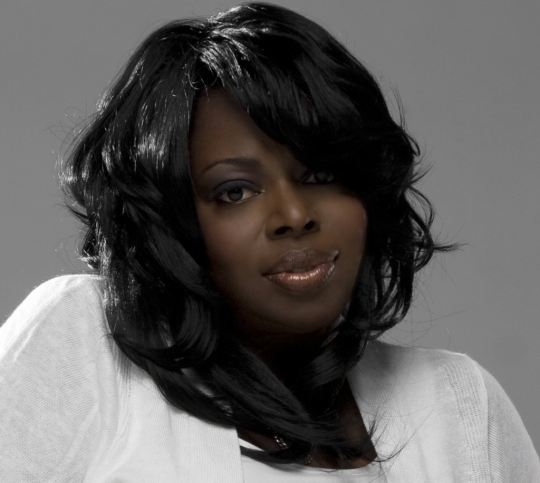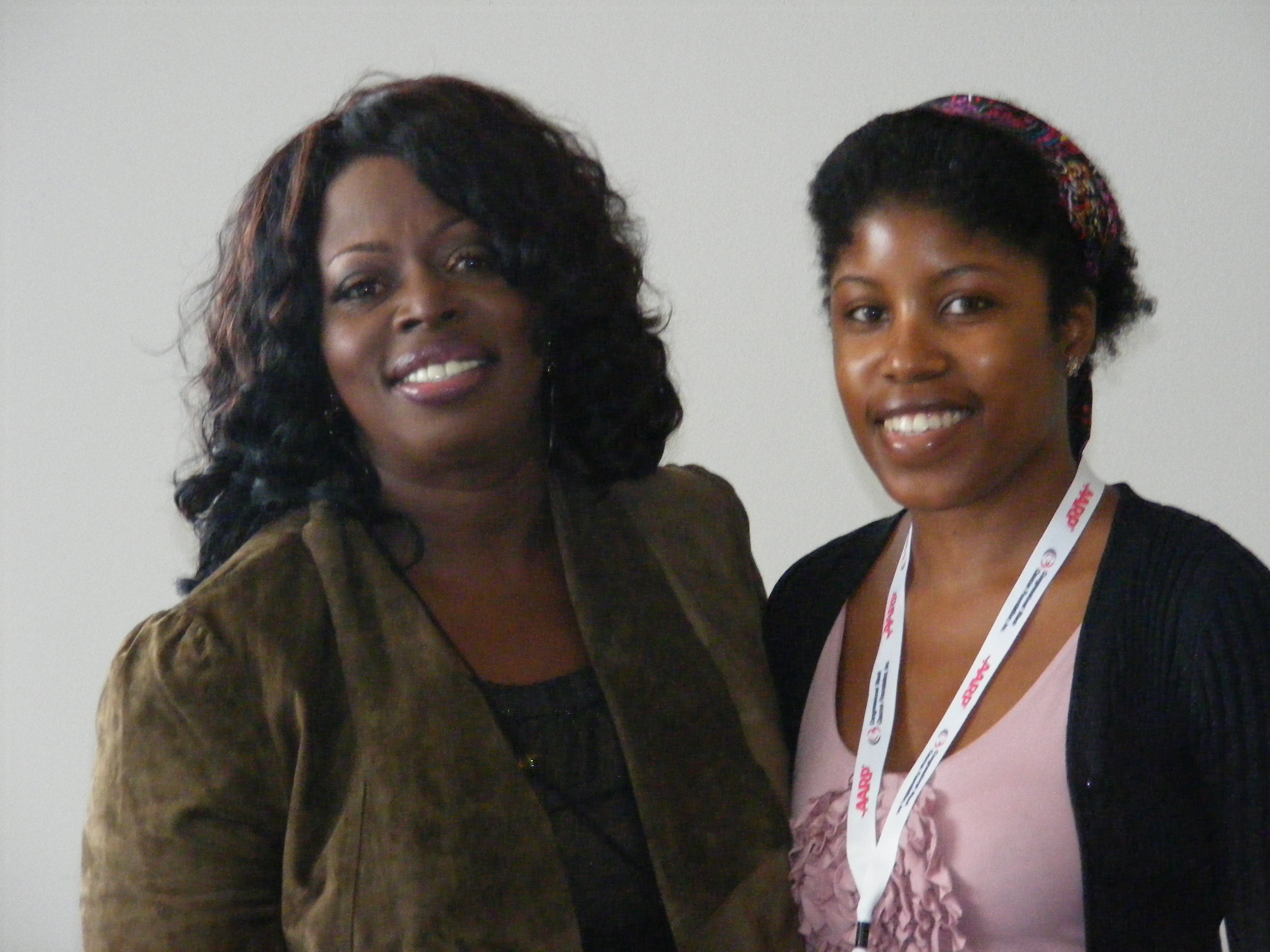By DeShuna Spencer
 Angie Stone is a talented neo-soul singer and songwriter who sold more than 5 million records worldwide during the last 30 years. What people may not know about her is that she lives with a disease that affects 285 million people worldwide, including 3.7 million black Americans.
Angie Stone is a talented neo-soul singer and songwriter who sold more than 5 million records worldwide during the last 30 years. What people may not know about her is that she lives with a disease that affects 285 million people worldwide, including 3.7 million black Americans.
The disease is diabetes. And during the Congressional Black Caucus’ 41st Annual Legislative Conference, held in Washington, D.C. last week, Angie Stone talked to emPower magazine about her involvement with the F.ACE. (Fearless African-Americans Connected and Empowered) Diabetes campaign and how she continues to thrive despite her Type 2 diabetes.
emPower magazine: Why did you decide to become a spokesperson for F.A.C.E. Diabetes?
Angie Stone: I'm an advocate for change and spiritually grounded. I know that my purpose is not just to be on stage and entertain. I know that when God equips us and gives us certain things, He expects a certain amount of attention and leverage to serve a cause. I truly believe that my being a diabetic serves as a light to others to let them know that even celebrities have dark moments and challenges. When I got the opportunity to share that with other people I was hoping millions of fans could learn from the very thing that I’m plagued with and go and get tested. I was very excited about coming on board and sharing the tools and ammunition that I have to try to charge people to get involved with this initiative. That’s why I decided to be the face for the F.A.C.E. Diabetes cCampaign.
emPower: When were you diagnosed with diabetes?
Stone: It’s been well over 12 years. As a diabetic, along with so many other people, I had the challenges of denial and fear of the unknown. But I beat all of that over time. I too have become "fearless" in the face of diabetes. You can live a healthy life. You can still eat. You can still do the things you want to do, but awareness is key. You have to know what you're dealing with. That's why the F.A.C.E. campaign is so important. People know that you don't have to give up; you don't have to quit or die.
emPower: That’s so true. You meet people with diabetes who feel like their life is over because they can't eat this or do that. For many black people, food is our love; it is a part of our culture. Do you like to cook? And how did you change your cooking habits?
|

|
| R&B singer Angie Stone and emPower magazine Publisher DeShuna Spencer pose for a picture after the interview. |
Stone: I'm a mother and grandmother and I do love to cook. It’s the one thing I didn't get to do a lot of as a kid because I’ve been in the spotlight for over 30 years now and I’m always on the go. When I finally took some ‘me’ time, I would (have) cook outs. So there were hotdogs, hamburgers and chicken. I’m so excited now because my grandson is a vegetable baby. Now, I make cabbage. I make string beans. I make broccoli and he eats salads. It’s making a difference in my own household. I don't remember the last time I had fried chicken. I prepare my chicken where it's so good I don't miss it being fried. I eat baked chicken and grilled chicken and lots of vegetables and if I eat rice, it's brown rice. You can still have all the foods you like; you just have to eat in smaller portions. You will be okay as long as you’re still taking your meds. You can still enjoy food; you just can't over indulge.
emPower: I agree. You see people who are afraid to give up their foods and unfortunately die from this disease because of that. It’s unfortunate.
Stone: Yes, it is unfortunate. You don’t have to die from this disease.
emPower: How did you find out you had diabetes?
Stone: I was on a trip with my parents and my mom had been diagnosed not even a month prior. I started having frequent urination and having these severe cramps in my leg. My mom said 'Oh, I hope it's not what I think it is.’ Understand, I have never been a junk food eater so in my opinion, I was not a candidate for diabetes. I was unaware of the symptoms of diabetes. I went a long time in denial because I didn't pay attention to the simple things—the symptoms. It wasn't until I had the cramps when it was suggested that I get the test and I was like, ‘No I don't have it.’ But sure enough I was diabetic. I don’t know how long I had been diabetic, but for the first time it explained all of the frequent urination I had for so long. This is why the F.A.C.E. campaign is so important. If you can't learn anything else, you can at least find out what to look for. People just think that one day a doctor tells you have it, but you have to be tested. Not to discuss horror stories, but people are walking around not knowing they have it and when they find out it's too late. As African Americans, we are the primary carriers of this disease.
emPower: Yes, unfortunately. You mentioned that it took you a while to go to get tested. How important it is for people of color to go to the doctor and not be afraid. Sometimes, black people have the "I don't want to know" way of thinking and then next thing you know their leg is amputated.
Stone: That’s why the campaign is ‘Fearless African-Americans Connected and Empowered’ because we’re afraid of the one thing we don't understand. Some may say, ‘What if the doctor tells me I have it?’ Well you should thank God because you could be walking around being blind to the disease. I hate going to the doctor because I don't want to find anything that I don't want to hear, but I know it's important, so I go. I learned from my mother how important it is to go to the doctor. My mother had a hunch. She was watching a gospel show and she felt that they were talking to her. She was obedient, went to the doctor the next day and found out she had a spot on her colon that was cancerous. They were able to catch it in time.
emPower: What are some of things you're doing with the F.A.C.E. campaign?
Stone: What I have been doing for the past three years is traveling from state to state telling my story so others know that they’re not the only ones subjected to this horrible disease. I want people to see me, know that I’m okay and I’ve been surviving with this disease all of these years and you can too.
Learn more about the F.A.C.E. Diabetes Campaign, by visiting www.face-diabetes.com.
DeShuna Spencer is publisher and editorial director of emPower magazine.
Add a Comment ::
View Comments



